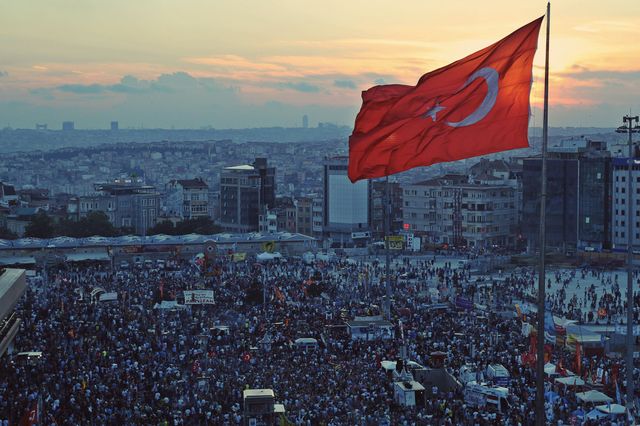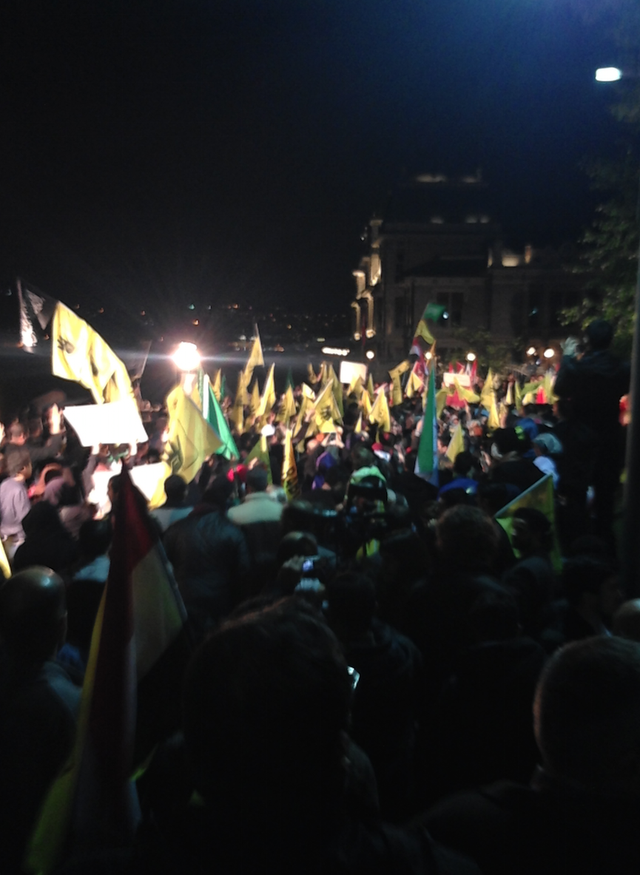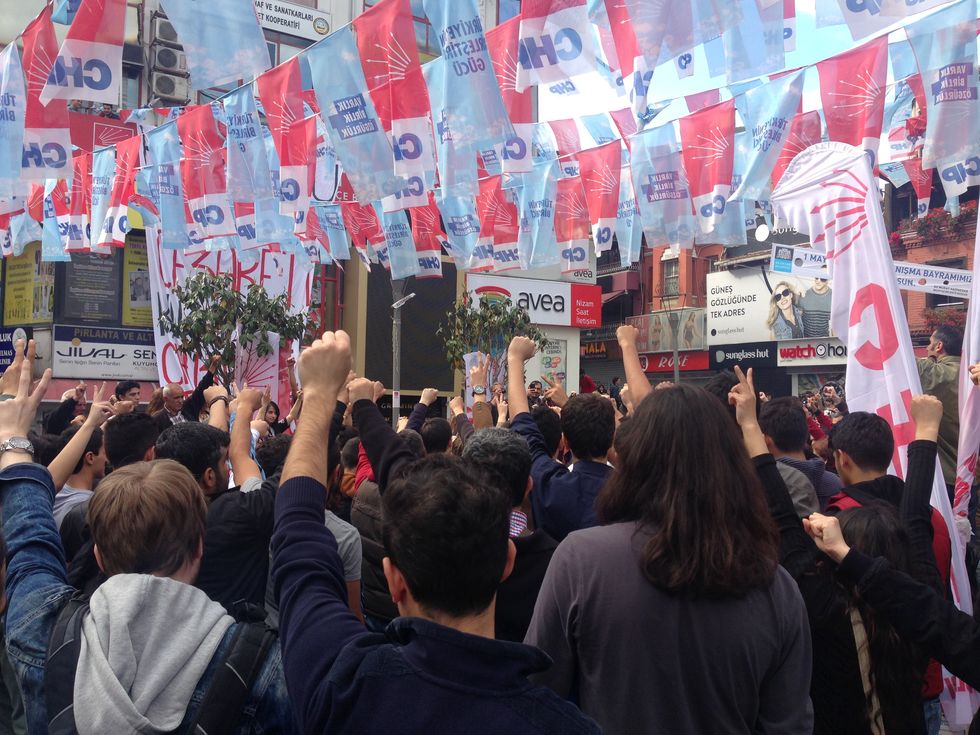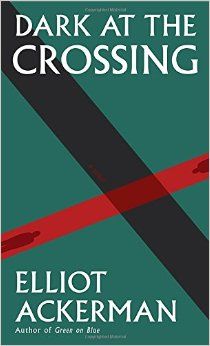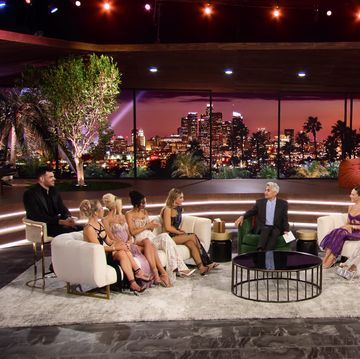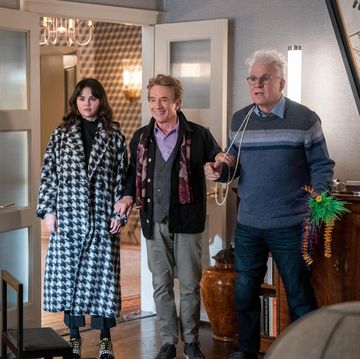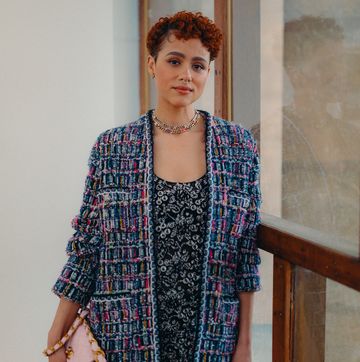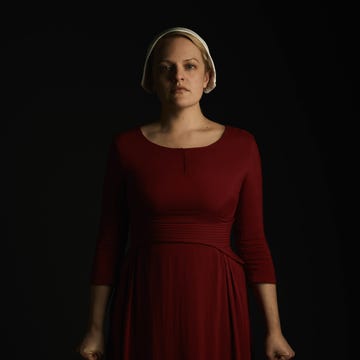A week or so after I moved to Istanbul with my two children, who were then two and four years old, I heard a commotion outside of our apartment window. It was after 10 P.M., so they were both in bed and I decided to investigate the source of the chanting, bullhorns, and sirens. I lived on a hill with a park and playground at its bottom and there, dangling from the side of the jungle gym, atop the monkey bars, and spread out in every direction, were hundreds of protestors. They flew the yellow flags of the Muslim Brotherhood and had come to the nearby Egyptian consulate to demand the release of their imprisoned leader Mohammad Morsi. Being the sole American in their midst, I immediately felt the weight of a dozen or so suspicious stares, so I did the least threatening thing I could: I walked over to a small kiosk and bought some ice cream, which I returned to our fridge as my children slept, oblivious to the scene that was evolving at their local playground.
This fall, my children returned to school in the United States after spending the past two and a half years in Istanbul, where I had gone to finish work on a book. Not long after their first day, while driving them in one morning, my six-year old daughter caught a headline on the radio about yet another violent incident in Turkey. "Is there a war there?" she asked, and told me that she was worried about some of her friends, specifically her best friend, an Australian girl whose mother was a foreign correspondent. I turned around in my seat and explained that, no, there wasn't a war going on in Turkey.
"If there was a war going on in Turkey, would Daddy travel there so much?" I offered. I've covered the conflicts in Syria and Iraq for the past three years and my daughter is savvy enough to understand that my choice to travel to a place isn't predicated on whether it's safe. Disapproving furrows spread across her forehead as she offered me a pursed little frown—she wasn't buying my logic. Fortunately, we soon arrived at drop-off. She grabbed her backpack, hopped out of the car, and jogged into her classroom. But as I began my day, I wrestled with how to answer her question in a way that would satisfy her. And me.
Politically speaking, it's difficult to say whether there is a war going on in Turkey. There is the simmering Kurdish insurrection in the southeast, the intermittent bombings in the capital of Ankara and Istanbul sponsored by both Kurdish separatists and the Islamic State, and the coup d'état this past July when F-16 fighter jets made low-level passes above the apartment where we'd lived. From an outsider's perspective, these events alone—and there are many others—could lead one to conclude that Turkey is indeed at war. But this past year in the United States, we've seen Islamic State–inspired terrorist attacks in Orlando, New York City, Ohio, and Minnesota; and we've witnessed coordinated attacks against police officers in Dallas and Baton Rouge. Although we haven't lived through a coup d'état, we have lived through one of the most divisive elections in history. Destabilizing as all these events have been, no one would claim there is a war in America.
Had I told my daughter that there was a war in Turkey, it would have provided a simple framework for her to understand the events she was hearing on the news. But what are the secondary effects of telling a child that war has arrived in their home (or in my case, what was very recently their home)? To describe what's going on in Turkey as a war is an oversimplification of complex political, social, and economic trends that have manifested in violence, much in the same way that similar trends have manifested as violence in the United States over this past year. For a child, home should be a physical and psychological refuge. Any message to the contrary violates that sanctity. Having spent most of my adult life around war, I had seen firsthand among children in Iraq and Afghanistan how there is no greater theft of youth than violence. Looking at my daughter in the car that morning, I could intuit the re-evaluation she would make of what had once been her home if I told her that Turkey was at war.
During my years with the children in Istanbul, I would inevitably receive concerned emails and phone calls from home after any attack—whether it was a couple of miles away in downtown Istanbul or 600 miles away in the capital, Ankara. I appreciated that we were in the thoughts of family and friends, but only recently, upon returning, did I notice that I rarely received similar calls after a bomb went off in the United States, even when I was in the same city as the attack. The reason seems obvious: Places like New York City and Orlando are familiar to us in a way Istanbul or Ankara are not. It was this unfamiliarity and the fear it often breeds that I hoped to preempt in my children by giving them the experience of living abroad. If they can feel at home in one of these distant capitals, I hope they can feel truly safe in the world, or, to put it another way, that they can feel truly at home in the world. To tell my daughter that there was a war in Turkey would emplace a barrier between her and a place she had happily lived—a barrier built on a narrative of insecurity and a view that certain, familiar parts of the world are safe, while the other, foreign parts, are not.
When I picked her up from school that afternoon, my daughter's mind had moved on to other things. As I buckled her into the backseat of my car, we didn't talk about Turkey, whether it was at war, or much of anything for that matter. It was only a couple of weeks later, after Ahmad Khan Rahami, an Islamic State sympathizer, detonated a bomb in midtown Manhattan, that the subject came up again. The afternoon after the attack, I was sitting with my daughter in our living room. I was on the sofa and she was playing on the floor when a Turkish friend called to check in. He said he'd heard about the attack and wanted to know if everyone was okay. "Yes," I said. "We weren't nearby."
"Thank God for that," he answered. The relief in his voice surprised me, but I realized that to him perhaps this bombing seemed more frightening than the ones we'd experienced in Istanbul together. We soon hung up and I noticed my daughter staring at me with the same, quizzical expression she had had that morning before on the way to school.
"What were you talking about?" she asked me.
I explained to her about the bombing and that my friend in Istanbul was calling to check up on us, just like our friends in the United States used to call to check up on us when these things happened in Turkey. I thought that she might ask me again whether there was a war in Turkey, or perhaps even ask whether this bombing meant there was a war in the United States. But she didn't ask either. Instead she wanted to know when we could go back to visit our friends in Istanbul.
"Soon, I think."
And giving no more thought to the day's events, she continued to play on the floor.
Elliot Ackerman is the author of the forthcoming novel Dark at the Crossing.
